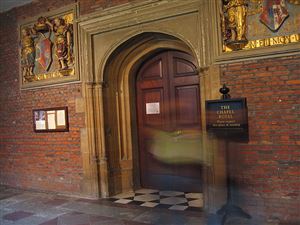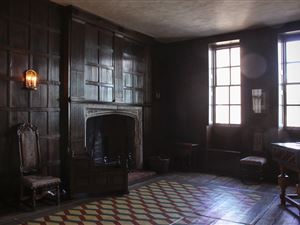What happens when your home is repossessed in Scotland?

No one really wants to think about what could happen if they can't keep up with their mortgage payments, but it's good to know what could happen and how best to deal with repossession.
Scotland
Repossession law and rights are different across Britain so we will take a look at each of them in the coming days. First we will take a look at Scotland.
Why do homes get repossessed?
Your home can be repossessed by your mortgage provider if you fail to keep up with your mortgage repayments and they pursue court action to repossess your home in order to sell it to recover your mortgage debt.
The basic process of home repossession is as follows
- Mortgage lender starts legal process to repossess property
- Court hearing
- Notice of eviction
However, the process of repossession is not necessarily a clear cut process, there are many steps which can allow you to negotiate with your mortgage provider and other avenues of help that are available.
Let's take a look
Even once you have built up mortgage arrears you do have the option of negotiating with your mortgage provider and can get free help with this from the Citizens Advice Bureau. It is possible to prevent court action if you are able to set up an arrangement with your mortgage provider. The good news is that even if this arrangement breaks down there are still other options available which your mortgage provider can pursue without having to repossess your home.
Some of these options may include:
- Notice of default - Where you are given the opportunity to repay your mortgage arrears within a set time frame of one month.
- Calling up notice - Where you are given the opportunity to pay back your entire mortgage within a set time period of two months
How do mortgage providers begin the process of repossession?
Your mortgage provider will begin with a series of letters which will explain the process of repossession, this usually happens after there has been a failure to negotiate repayment of the acrued mortage arrears and a series of written warnings. It is very important to respond to these letters within the set time period. At this point it is a good idea to get legal help, and depending on your circumstances you may be entitled to legal aid.
During this process your mortgage provider has to follow the rules set out by the Financial Conduct Authority (FCA) if your mortage was taken out after 31/10/2004.
When your mortage provider begins the process of repossession you will be served with an initial writ for repossession under section 24 of the Conveyancing and Feudal reform Act 1970. This is where a court hearing date will be set to take place usually after 14 days of the letter being sent out. Even at this point there is still an opportunity to prevent your home being repossessed if you are able to come to an agreement with your mortgage provider. It's never too late to negotiate with them.
What happens at a court hearing?
During the court hearing your case will be heard and the final outcomes can range from your case being dismissed without further action, or the case can be suspended if you have made a new arrangement with your mortgage advisor or in the worst case scenario your mortgage lender is granted a repossession order.
It is highly advised to have legal representation for your court hearing.
What happens after a decree for eviction?
Even when your mortgage lender has been given a decree to repossess your home it isn't too late to negotiate with your mortgage provider. You also have the option of asking the court to recall the decree if you didn't appear in court or were not legally represented.
Once the decree has been granted to your mortgage lender you will usually be given 14 days to leave the property. After the eviction date your home is repossessed and can be resold.
What happens after you have been evicted?
Once you have been evicted your mortgage lender will then sell your property, they have a duty of care towards you which ensures they get the best price they can for your property. However most mortgage lenders will sell your property at auction which usually means they sell for less than on the open market.
What happens once your house has been resold?
Once your home has been resold your mortgage provider will take from the proceeds the amount they are owed, deduct legal fees and estate agent fees. Fortunately if there is any money left over it will be given to you.
Unfortunately if the mortage lender are not able to cover their costs from the sale of your property you will have to pay the difference which is known as a shortfall, which could force you into bankruptcy.
How can repossession be avoided?
It's important to keep up with your mortgage payments, if you have any money left over after paying all your monthly bills it's a good idea to put some into savings in case you run into difficulties with paying your mortgage at a later date. If you run into financial difficulties don't wait for your money troubles to spiral out of control. Speak to your mortgage as soon as possible to let them help you keep track of your mortgage payments.



